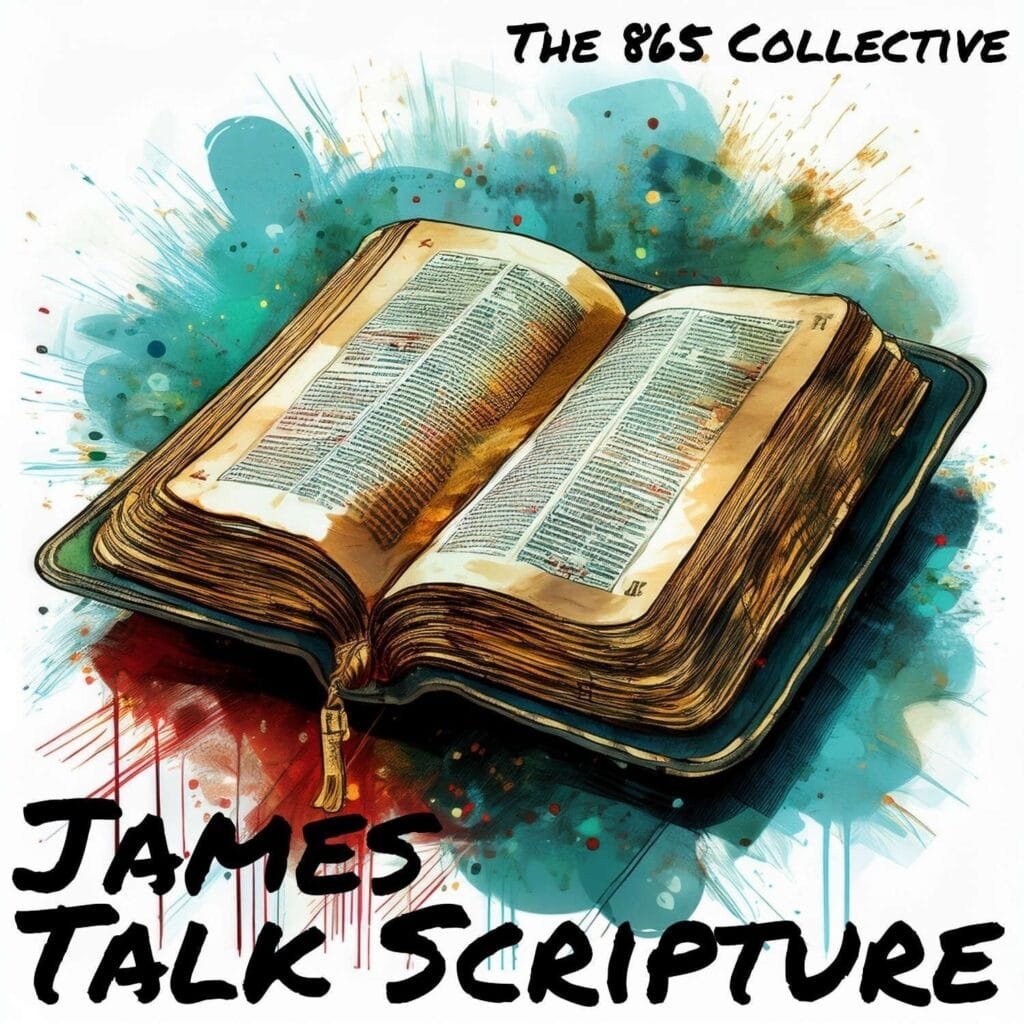James has been writing about correcting our posture before God—really listening to Scripture with humility and submitting to it. He spoke of the implanted word and echoed Jeremiah 31:33:
“I will put my law within them, and I will write it on their hearts. “
God wants to write His word on our hearts and guide us in our relationship with Him.
But here’s the thing: just filling our heads with Bible verses isn’t the point—unless our goal is to appear spiritual or win a round in Jeopardy. James gives a clear warning by saying the tough things out loud. There is real danger in approaching God’s word with passive indifference. God is not concerned with our feelings but with our positioning with Christ. Knowing about Jesus doesn’t mean we are walking with Jesus. Do not deceive yourself. Hearing is not a substitute for doing.
James is crystal clear: the whole reason we hear God’s word is to do it. Hear and then do.
The Christian faith is not a passive existence. It isn’t about playing it safe, turtling through life, or burying our heads in the sand. God calls us to step out in faith—to hear and do, to listen to the truths of Scripture and respond. Our reasonable response is a life of living sacrifice to God. James is calling us into a deeper, more effective faith—a faith that not only impacts us but the world around us. A faith that costs us something. A faith marked by obedience to the truth of Scripture.
Think about it like this: someone could spend their entire life studying woodworking—reading every book, watching every YouTube video, talking to every woodworker they can find, learning the types of joinery and grain patterns. They might even start thinking they’re a woodworking expert. But if they never actually pick up a tool and try to build something, are they really a woodworker? No way. They’re just someone with a lot of unused information. Knowledge without action is pretty worthless. If someone says they are a woodworker, it is safe to assume they work with wood.
We can be guilty of the same thing when it comes to God. We can spend so much energy on learning His word. We search the Bible to answer all sorts of questions. We have Bible studies about having Bible studies. It’s easy to get stuck in a loop of learning, and it can make us feel like we are actually achieving something. But learning is not the goal. Hearing is not the end-all be-all. There’s a huge difference between hearing the truth and actually responding to it.
Of course, we should seek depth in our faith and understanding. Learning what God says about issues in our culture is beneficial. But, perhaps, more of our energy and desire should be focused on working out the royal law—to love God and love our neighbor.
Jesus said, “If you love me, you will keep my commandments.” He wasn’t giving us suggestions; He was telling us what real love looks like. To love God is to obey Him. John also reminds us, “For this is the love of God, that we keep his commandments. And his commandments are not burdensome.” Not only do we obey the commandments of God, but they become our joy. I’m on this journey too, and I’m talking to myself as much as I am trying to encourage you. I desperately want my life to reflect my love for Jesus.
James uses the illustration of someone looking in a mirror and seeing their messy hair, dirty face, and tired eyes—then just walking away like everything’s fine. Failing to do anything with what they learned. What’s the point of looking in a mirror if you’re not going to change anything? The mirror shows us what needs fixing, where to put our energy and attention.
James draws a correlation between the mirror and the perfect law—the law of liberty. The Gospel and all of Scripture, understood and viewed through the life, death, and resurrection of Jesus, become our perfect law, our law of liberty.
It is foolishness to look into Scripture, see our need, recognize the obedience God is calling us to, and understand the purpose He wants us to walk in—but then look away, forget, or simply ignore. But when we look intently into Scripture, allowing it to shape our minds, form our hearts, and dictate our actions, there is a promise attached: we are not blessed in the hearing but blessed in our doing.
Let’s be people known for our actions, not just our good intentions.
ESV Study Bible. (2010). Crossway Books.
From Talk Scripture: Be a Doer | James 1:22-25
https://podcasts.apple.com/us/podcast/be-a-doer-james-1-22-25/id1786264764?i=1000689253232
This material may be protected by copyright.

